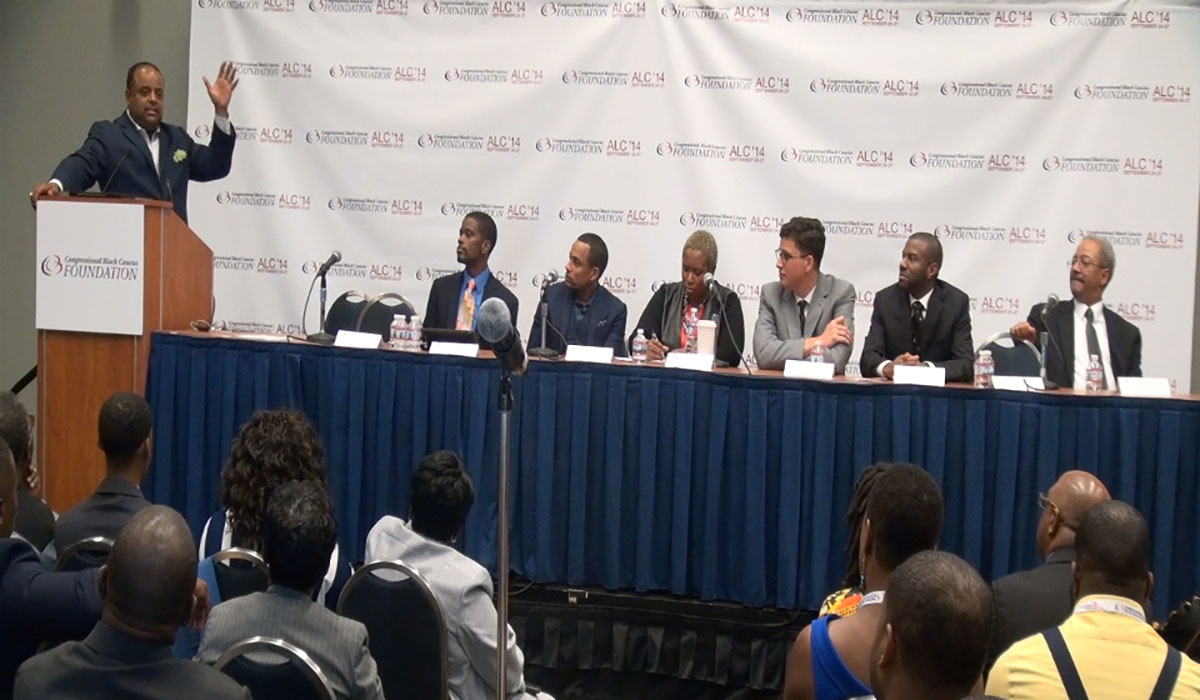WASHINGTON – With minorities still facing a stubborn achievement gap, African- American leaders are suggesting a new strategy that highlights two-year colleges and associate degree programs to help minority students become more competitive in today’s market.
Roland Martin, host of TV One’s ‘News One Now,’ led a panel discussion Wednesday during the Congressional Black Caucus’ Annual Legislative Conference in Washington this week. Speakers stressed the importance of innovative education that transfers into stable jobs.
Martin gave an example.
“There was a shortage of workers who specialized in climbing the power line because many of them had retired,” said Martin in an anecdote, starring ComEd, the huge Chicago electric utility. “So ComEd created a nine-month certification program at a community college. If you graduated and were hired by the company, your starting salary was $70,000.”
A study released by the Young Invincibles Network highlighted the existing achievement gap. The network reported that an African American male with at least some college experience is as likely to find employment as a white male who dropped out of high school. The National Center for Education Statistics concluded that 33 percent of white high school students were at or above proficiency for mathematics last year, while blacks trailed with only 7 percent.
Given the statistics and the soaring cost of college, Ivory Toldson, editor-in-chief of the Journal of Negro Education, said it is important for minority students to develop a specialized skill that will add value to their resumes.
This thinking is in line with the American Graduation Initiative proposed by President Barack Obama. Through a White House report, the president has stated, “In the coming years, jobs requiring at least an associate degree are projected to grow twice as fast as jobs requiring college experience.”
His initiative outlined two goals: for America to have the highest proportion of college graduates in the world by the year 2020, and for community colleges to produce an additional 5 million graduates to add to that total.
According to the American Association of Community Colleges, graduates of two-year programs added $809 billion dollars to the economy in 2012. African-Americans represent 14 percent of the total enrollment nationwide, and leaders of the Congressional Black Caucus are pushing for policy and grassroots efforts within local communities to help that number grow.

